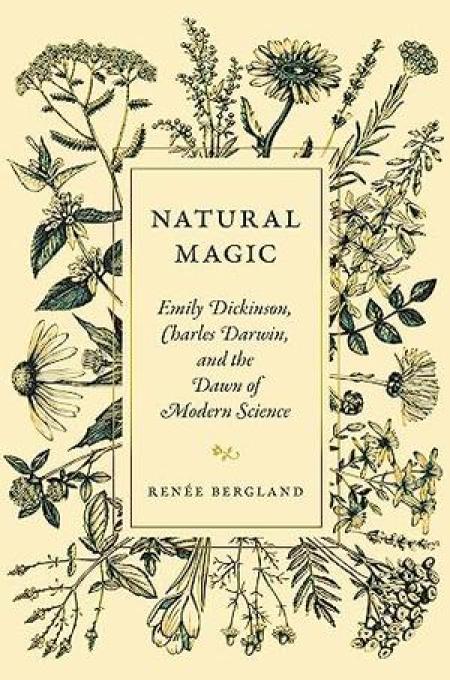
American Antiquarian Society
185 Salisbury Street
Worcester, MA 01609
United States
Natural Magic weaves together the stories of two nineteenth-century luminaries--Emily Dickinson and Charles Darwin--whose thought and writings captured the awesome possibilities of new sciences and at the same time strove to preserve the magic of nature. Emily Dickinson and Charles Darwin were born at a time when the science of studying the natural world was known as natural philosophy, a pastime for poets, priests, and schoolgirls. The world began to change in the 1830s, while Darwin explored the Pacific aboard the Beagle and Dickinson was a student in Amherst, Massachusetts. Poetry and science started to grow apart, and modern thinkers challenged the old orthodoxies, offering thrilling new perspectives that suddenly felt radical—and too dangerous for women.
Just as Darwin’s work was informed by his roots in natural philosophy and his belief in the interconnectedness of all life, Dickinson’s poetry was shaped by her education in botany, astronomy, and chemistry, and by her fascination with the enchanting possibilities of Darwinian science. Casting their two very different careers in an entirely fresh light, Renée Bergland brings to life a time when ideas about science were rapidly evolving, reshaped by poets, scientists, philosophers, and theologians alike. She paints a colorful portrait of a remarkable century that transformed how we see the natural world.
In this illuminating and insightful talk, Renée Bergland explores how Dickinson and Darwin refused to accept the separation of art and science and reveals how today, more than ever, we need to reclaim their shared sense of ecological wonder.
This hybrid program will be held in person at Antiquarian Hall and livestreamed to a virtual audience on YouTube. Advance registration is required for both. Doors open at 6:30pm. Visit americanantiquarian.org to register.
Renée Bergland teaches American Literature, Research and Writing, and Critical and Cultural Theory, and her courses tend to feature intersectional approaches to gender and race. She is the author of The National Uncanny: Indian Ghosts and American Subjects (UPNE 2000) and Maria Mitchell and the Sexing of Science: An Astronomer Among the American Romantics (Beacon 2008). With Gary Williams, she edited Philosophies of Sex: Critical Essays on Julia Ward Howe’s Hermaphrodite (Ohio 2012). Her essays and reviews have appeared in American Literary History, ESQ, SIGNS, The Nathaniel Hawthorne Review, ISIS, Legacy, and the Journal of American History, among others.